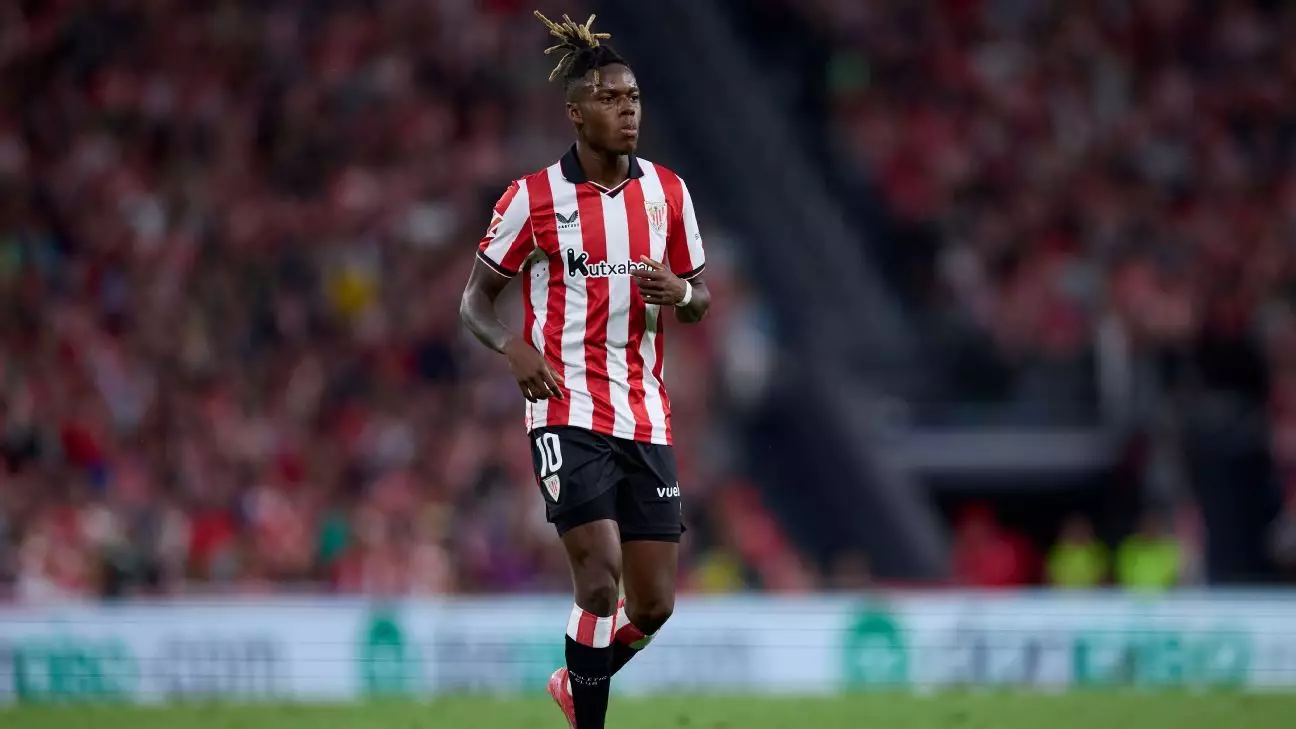In the whirlwind world of football transfers, timing is everything, and Nico Williams has placed Barcelona under noticeable pressure. The 22-year-old winger, who has already agreed on personal terms with Barcelona and notably turned down larger offers from other clubs abroad, is now waiting for the Blaugrana to activate his release clause. His insistence on finalizing the deal before returning to Athletic Club training on July 9 reflects a deep desire to avoid distractions and possible conflicts with his current employer. The urgency behind Williams’ request sheds light not only on the player’s mindset but also on Barcelona’s balancing act to navigate multiple transfer priorities amid a crowded summer market. This scenario exemplifies how players increasingly exert agency, driving clubs to accelerate negotiations if they want to secure talent without drama.
Paris Saint-Germain and Bayer Leverkusen’s Shared Interest in Diogo Leite: A Competitive Landscape
Across the European spectrum, Paris Saint-Germain has joined several suitors, including Bayer Leverkusen and undisclosed clubs from the Premier League and Serie A, in targeting Union Berlin’s center back Diogo Leite. The 26-year-old’s contract situation—lasting until mid-2026—has influenced the Bundesliga club’s openness to negotiate for a fee around €13 million. This figure, relatively modest in today’s transfer market for a player with Leite’s age and potential, underlines the practical considerations clubs face to capitalize financially on assets while maintaining squad stability. PSG’s interest reveals their ongoing strategic reinforcement of defensive options, aiming to blend youthful talent with experience. The dynamic also highlights how mid-tier clubs like Union Berlin must weigh competitive interests against financial pragmatism, setting the stage for intense bidding wars.
Brighton’s Tough Line Against Newcastle’s Surge for João Pedro
While Newcastle United has reportedly tabled a substantial £50 million offer for Brighton’s promising forward João Pedro, the Seagulls have firmly declined. The 23-year-old Brazilian’s potential departure seems likely still, given Newcastle’s sustained interest and concurrent surveillance from Chelsea. Yet João Pedro’s apparent preference to join a club guaranteeing first-team football introduces a pivotal variable in the tussle. This insistence of player agency—choosing playing time over mere financial or club prestige—demonstrates the nuanced decision-making landscape today. The episode underscores Brighton’s strategy to retain key assets or extract maximum value, illustrating how mid-tier Premier League clubs have become shrewd negotiators rather than mere talent transit points.
Fenerbahce’s Ambitions and Contrasts in Player Reception
On the Turkish front, Fenerbahce appears ambitious, pursuing young Colombian striker Jhon Durán and engaging in direct conversations—led by José Mourinho—with the 21-year-old. Durán’s openness to re-enter European competition through Turkey contrasts with Jadon Sancho’s hesitation over a similar proposition. The latter’s potential move hinges on Fenerbahce’s success in qualifying for the UEFA Champions League, signaling that even marquee players seek competitive platforms rather than just lucrative contracts. These contrasting attitudes reflect broader trends in player priorities, where competition prestige frequently supersedes salary incentives. Moreover, Mourinho’s hands-on role exemplifies how managerial influence can catalyze transfers, particularly when bridging geographical and league differences.
The Ongoing Tug-of-War for Yunus Musah
In midfield circles, the saga of Yunus Musah illustrates the complexities clubs face in finalizing deals. Both Wolverhampton Wanderers and Nottingham Forest are reportedly interested in the US and AC Milan midfielder, whose status remains unsettled after failed negotiations involving Napoli. The breakdown of the potential €25 million-plus-bonuses exchange highlights how even well-advanced talks can derail over valuation disagreements or strategic hesitations. Musah’s profile as a young, versatile talent ensures his market demand will persist, inviting a multi-club chase during the transfer window’s busy weeks. Such situations are emblematic of modern football’s iterative negotiation processes, where financial frameworks, player aspirations, and club strategies must align perfectly to achieve closure.
The Market’s Complex Reality: Players as Active Stakeholders
Sifting through these transfer developments, a salient theme emerges: players now exercise substantive clout over their career trajectories. Nico Williams’ proactive demand to Barcelona is emblematic of a broader shift where professionals do not passively await club decisions but actively prompt and shape negotiations. Similarly, João Pedro’s insistence on starting roles ahead of club labels, and Jadon Sancho’s conditional openness depending on continental competition, reinforce that players are integral decision-makers. This evolution challenges clubs to foster transparent and swift dialogue and to accommodate the multidimensional factors influencing signings beyond mere finance.
In sum, these interconnected stories of transfers—whether finalized or ongoing—showcase a multifaceted market characterized by strategic urgency, financial pragmatism, and empowerment of the individuals who animate the sport. The summer transfer window is transforming from a mere commercial cycle into a complex interplay of ambitions, timing, and calculated risks on all sides.

Leave a Reply